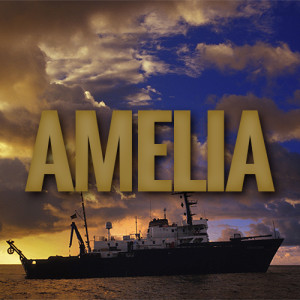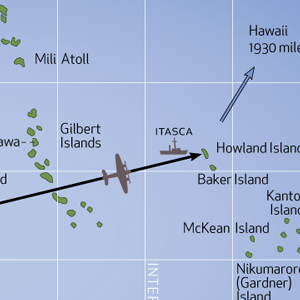Central Pacific Edition
A Sea Tale
With Pigs!
 Dear Sir: It is with regret and haste that I write this letter to you; regret that such a small misunderstanding could lead to the following circumstances, and haste in order that you will get this report before you form your own preconceived opinions from reports in the World Press, for I am sure that they will tend to overdramatize the affair.
Dear Sir: It is with regret and haste that I write this letter to you; regret that such a small misunderstanding could lead to the following circumstances, and haste in order that you will get this report before you form your own preconceived opinions from reports in the World Press, for I am sure that they will tend to overdramatize the affair.
We had just picked up the pilot, and the apprentice had returned from changing the “G“ flag for the “H,“ and being his first trip was having difficulty in rolling the “G” flag up. I therefore proceeded to show him how, coming to the last part I told him to “let go.” The lad, although willing, is not too bright, necessitating my having to repeat the order in a sharper tone.
At this moment the Chief Officer appeared from the chart room, having been plotting the vessel’s progress, and thinking that it was the anchors that were being referred to, repeated the “let go” to the Third Officer on the forecastle. The port anchor, having been cleared away, but not walked out, was promptly let go. The effect of letting the anchor drop from the pipe while the vessel was proceeding at full harbour speed proved too much for the windlass brake, and the entire length of the port cable was pulled out “by the roots.” I fear that the damage to the chain locker may be extensive. The braking effect of the port anchor naturally caused the vessel to sheer in that direction, right towards the swing bridge that spans a tributary to the river up which we were proceeding.
The swing bridge operator showed great presence of mind by opening the bridge for my vessel. Unfortunately he did not think to stop the vehicular traffic. The result being that the bridge partly opened and deposited a Volkswagon, two cyclists and a cattle truck on the foredeck. My ship’s company are at present rounding up the contents of the latter, which from the noise I would say were pigs. In his efforts to stop the progress of the vessel the Third Officer dropped the starboard anchor, too late to be of practical use for it fell on the swing bridge operator’s control cabin.
After the port anchor was let go and the vessel started to sheer I gave a double ring Full Astern on the Engine Room Telegraph, and personally rang the Engine Room to order maximum astern revolutions. I was informed that the temperature was 83 degrees, and was asked if there was a movie tonight. My reply would not add constructively to this report.
Up to now I have confined my report to the activities at the forward end of my vessel. Down aft they were having their own problems. At the moment the port anchor was let go, the Second Officer was supervising the making fast of the aft tug, and was lowering the ship’s towing spring down into the tug.
The sudden braking effect of the port anchor caused the tug to “run in under” the stern of my vessel, just at the moment when the propeller was answering my double ring Full Astern. The prompt action of the Second Officer in securing the shipboard end of the towing spring delayed the sinking of the tug by some minutes thereby allowing the safe abandoning of that vessel.
It is strange, but at the very same moment of letting go the port anchor there was a power cut ashore. The fact that we were passing over a cable area at that time may suggest that we may have touched something on the river bed. It is perhaps lucky that the high tension cables brought down by the foremast were not live, but owing to the shore blackout it is impossible to say where the pylon fell.
It never fails to amaze me, the actions and behavior of foreigners during moments of minor crisis. The pilot for instance, is at this moment huddled in the corner of my day cabin, alternately crooning to himself and crying after having consumed a bottle of gin in a time that is worthy of inclusion in the Guinness Book of Records. The tug captain on the other hand reacted violently and had to forcibly be restrained by the Steward, who has him handcuffed in the ship’s hospital while he is telling me to do impossible things with my ship and my person. I enclose the names and addresses of the drivers, and insurance companies of the vehicles on my foredeck, which the Third Officer collected after his somewhat hurried evacuation of the forecastle. These particulars will enable you to claim back the damage that they did to the railings of number one hold. I am closing this preliminary report for I am finding it difficult to concentrate with the sound of police sirens and the flashing lights. It is sad to think that had the apprentice realized that there is no need to fly pilot flags after dark, none of this would have happened.
The End
I first saw this story in 1996, credited to Captain Neil C. Norton, former Queen’s Harbour Master, Esquimalt, British Columbia, Canada. If it isn’t true, it should be!
— ed.



